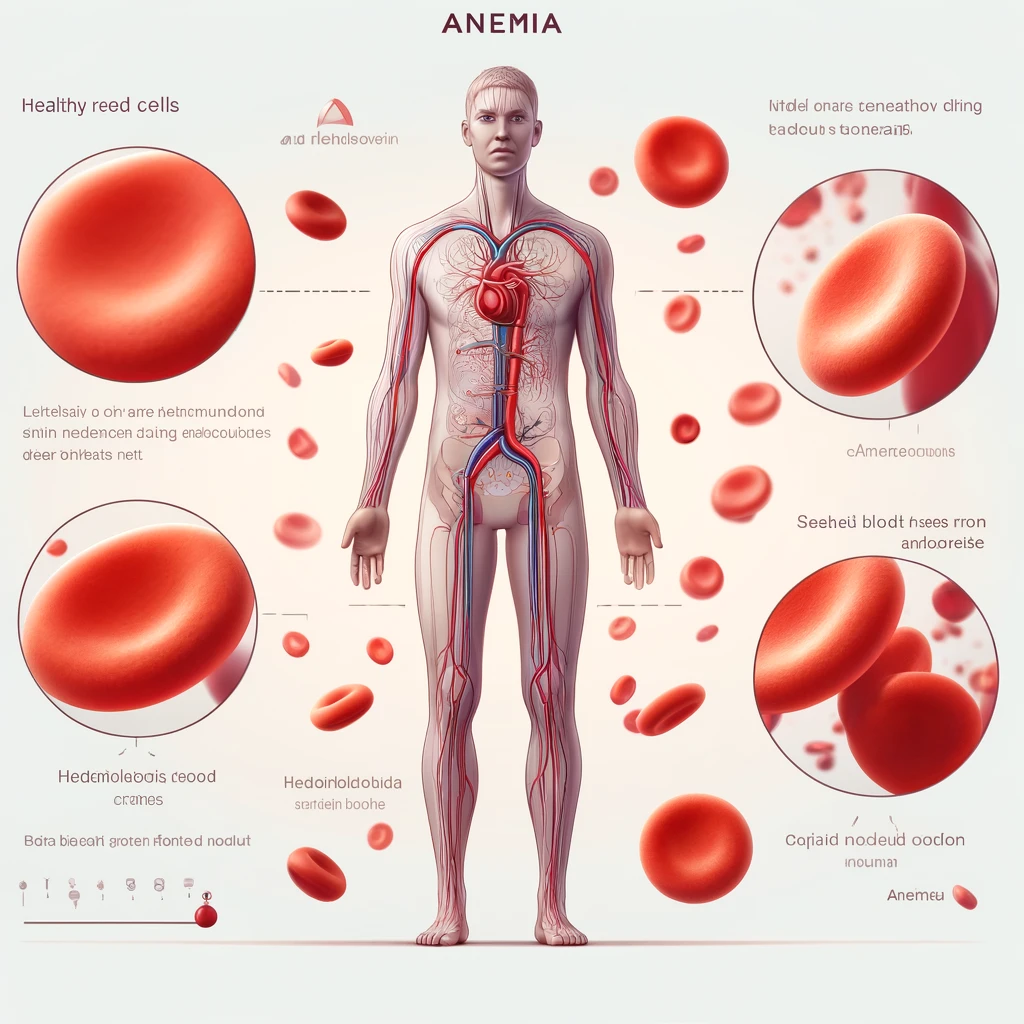A nephrology is a medical specialty dedicated to the study, diagnosis and treatment of diseases of the urinary system, especially those related to the kidneys. Understanding what nephrology is and its importance is fundamental to promoting kidney health and preventing complications that can significantly affect people's quality of life.
- What is Nephrology
- Importance of Nephrology
- Functions of the Kidneys
- Kidney Diseases
- Symptoms of Kidney Diseases
- Diagnosis and Treatment
- Kidney Disease Prevention
- When to See a Nephrologist
- Exams Performed by the Nephrologist
- Treatments Offered by Nephrology
- Healthy Living for Kidneys
- Myths and Truths about Kidney Health
- Technologies in Nephrology
- Nephrology in Brazil
- Conclusion
What is Nephrology
Nephrology is the area of medicine that focuses on the health of the kidneys, including their structure, function, diseases, and treatment. Nephrologists are specialized doctors who diagnose and treat a variety of kidney disorders, from simple infections to more complex conditions, such as chronic kidney failure. This specialty also covers the management of hypertension, electrolyte disorders, and the performance of dialysis procedures.
Importance of Nephrology
The kidneys perform vital functions in the body, such as filtering waste and excess fluid from the blood, regulating blood pressure, and maintaining mineral and electrolyte balance. Therefore, kidney health is crucial to overall well-being. Nephrology, by focusing on the prevention, early diagnosis and treatment of kidney disease, contributes significantly to maintaining these essential kidney functions and preventing progression to more advanced stages of kidney disease, which may require more invasive treatments such as dialysis or kidney transplantation.
Functions of the Kidneys
The kidneys are extraordinary organs that perform several critical functions to keep the body healthy. They are responsible for:
- Filter waste and toxins from the blood.
- Regulate blood pressure by managing fluid volume and releasing various hormones.
- Maintain the balance of electrolytes such as sodium, potassium and calcium.
- Produce hormones that help regulate red blood cell production and promote bone health.
Maintaining kidney health is, therefore, essential to ensure the proper functioning of the body as a whole.
Kidney Diseases
There are several diseases that can affect the kidneys, compromising their ability to perform vital functions for the body. Some of the most common include:
- Urinary tract infection (UTI): An infection that can affect the lower (bladder) or upper (kidney) parts of the urinary tract.
- Kidney stones: Hard crystals formed from substances in the blood that can cause severe pain.
- Glomerulonephritis: An inflammation of the glomeruli, which are the filtration units inside the kidneys.
- Acute renal failure: A sudden loss of the kidneys' ability to filter waste from the blood.
- Chronic kidney disease (CKD): The gradual and irreversible loss of kidney function.
Identifying and treating these diseases early is crucial to prevent progression to more serious stages.
Symptoms of Kidney Diseases
Symptoms of kidney disease can vary significantly depending on the specific disease and the stage it is at. However, some common signs and symptoms include:
- Changes in urination, whether in frequency, quantity or appearance.
- Swelling in the legs, ankles, feet, face or hands.
- Fatigue and constant weakness.
- Difficulty or pain when urinating.
- High blood pressure that is difficult to control.
- Presence of blood or protein in the urine.
It is important to seek medical attention if you notice any of these symptoms, as they may indicate a kidney problem that needs treatment.
Diagnosis and Treatment
To diagnose kidney disease, doctors may order a series of tests, including blood tests, urine tests, kidney ultrasound and, in some cases, kidney biopsy. Based on the results, the nephrologist will develop a treatment plan that may include:
- Medications to treat the underlying cause and symptoms.
- Diet and lifestyle changes to help manage the disease.
- Renal replacement treatment, such as dialysis, in cases of advanced kidney failure.
- Kidney transplant, considered in situations where dialysis is not sufficient.
The approach to treatment varies considerably depending on the specific disease and the patient's general health.
Kidney Disease Prevention
Preventing kidney disease is possible with the adoption of healthy habits and preventive measures. Some important tips include:
- Maintain a balanced diet, rich in fruits and vegetables and low in salt and refined sugars.
- Practice physical exercise regularly.
- Control your weight to avoid obesity, a risk factor for kidney disease.
- Keep blood pressure and blood sugar levels under control.
- Avoid excessive consumption of alcohol and tobacco.
- Drink adequate water, as recommended by your doctor.
- Use medications with caution and under medical advice, especially those that may affect kidney function.
Regular visits with a doctor are also essential for monitoring overall health and preventing kidney disease before it develops or progresses.
When to See a Nephrologist
There are several situations in which seeking advice from a nephrologist is necessary, including:
- Presence of signs or symptoms of kidney disease, such as those mentioned previously.
- Management of chronic diseases that affect kidney function, such as diabetes and high blood pressure.
- Abnormal results on blood or urine tests that indicate kidney problems.
- A family history of kidney disease.
A nephrologist can help diagnose the cause of symptoms, offer treatments, and recommend ways to protect kidney health.
Exams Performed by the Nephrologist
To assess kidney health, the nephrologist may order a series of tests, such as:
- Bloodtests: To check kidney function, such as glomerular filtration rate (GFR).
- Urine analysis: To detect signs of kidney disease, such as the presence of protein or blood.
- Renal ultrasound: To observe the structure of the kidneys and identify abnormalities.
- Computed tomography or magnetic resonance imaging: In specific cases, to obtain detailed images of the kidneys and urinary tract.
- Kidney biopsy: When necessary, obtain a kidney tissue sample for analysis.
These tests help provide an accurate diagnosis and determine the best course of treatment.
Treatments Offered by Nephrology
Nephrology treatments vary widely depending on the specific condition and its severity. Some of the treatment approaches include:
- Medication: To control symptoms, treat the underlying cause, and prevent disease progression.
- Lifestyle modifications: Including diet and exercise, to help manage the condition.
- Dialysis: A procedure that replaces the kidneys' function of filtering blood when they are no longer able to do so effectively.
- Kidney transplant: Replacing a diseased kidney with a healthy one from a living or deceased donor.
These treatments can help manage kidney disease and improve patients' quality of life.
Healthy Living for Kidneys
Maintaining a healthy lifestyle is crucial for kidney health. Some recommendations include:
- Stay hydrated, but don't overdo it. The ideal amount of water varies depending on the individual.
- Adopt a diet rich in fruits, vegetables, whole grains and lean proteins.
- Avoid excess salt and processed foods.
- Practice physical activity regularly.
- Monitor and control blood pressure.
- Avoid the use of harmful substances, such as tobacco and excessive alcohol consumption.
Taking these steps can significantly lower your risk of developing kidney disease and other health conditions.
Myths and Truths about Kidney Health
There are many myths and misconceptions about kidney health. Some of the most common include:
- Myth: Drinking large amounts of water daily is beneficial for all kidneys.
- True: While hydration is important, excess water can be harmful in certain kidney conditions.
- Myth: Kidney disease is always accompanied by obvious symptoms.
- True: Many kidney diseases progress silently, without noticeable symptoms until they reach an advanced stage.
- Myth: Only elderly people suffer from kidney disease.
- True: People of all ages can be affected by kidney disease.
Understanding these myths and truths is essential for the prevention and proper management of kidney health.
Technologies in Nephrology
Nephrology has benefited from significant technological advances, both in the diagnosis and treatment of kidney diseases. Some examples include:
- Development of more efficient and less invasive dialysis techniques.
- Use of artificial intelligence to improve diagnostic accuracy.
- Innovations in kidney transplantation, such as better methods of compatibility between donor and recipient.
These technologies have the potential to significantly improve kidney health care.
Nephrology in Brazil
In Brazil, nephrology is a medical specialty that has received increasing attention due to the increase in kidney diseases in the population. The country has specialized centers and highly qualified professionals for the treatment of various kidney conditions. Furthermore, the Unified Health System (SUS) offers access to nephrology treatments, including dialysis and kidney transplantation, ensuring support for patients throughout the national territory.
Conclusion
Nephrology is an area of medicine essential for maintaining kidney health. With adequate knowledge about the prevention, diagnosis and treatment of kidney disease, it is possible to manage these conditions effectively and promote a healthier life. Adopting healthy lifestyle habits, seeking medical advice when necessary and being informed about advances in the area are fundamental steps to protecting kidney health.








